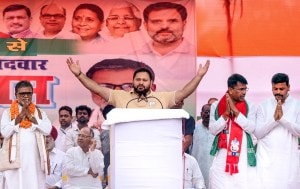First global meet on cyberspace from today
LONDON: Sachin Pilot leads Indian team to 2-day conference; govts,NGOs,corporates to take part
Is it possible to regulate Internet? How can cyber crime be prevented? What is the right balance between protection of intellectual property rights and access to information? How can the social benefits of Internet be maximised?
These are some of the issues that will be debated at the first-of-its-kind Conference on Cyberspace being organised in London by the British Foreign and Commonwealth Office from Tuesday.
The two-day conference will see participation from about 60 governments,besides a large number of corporates,non-government organisations and other stakeholders.
From India,Minister of State for Communications and IT Sachin Pilot is leading a high-level delegation comprising officials from his ministry,the National Security Council and the Ministry of External Affairs.
This is one of the great challenges of our time. Nobody controls the Internet,and we cant leave its future to chance. We have the opportunity to secure a bold and innovative future but we also face the risk that the Internet is used as force for harm. We must start to act now,if we are to protect and preserve the tremendous opportunities that the development of cyberspace offers us all, said Britains Foreign Secretary William Hague who will open the conference.
John Duncan,Britains former principal ambassador on nuclear proliferation and disarmament who is now serving as the Special Representative for the Conference,said the current debate on cyberspace lacked structure and framework. He said the overall objective of the meeting was to discuss whether some sort of regulatory mechanism can be evolved for the cyberspace.
We know it is a very complex issue. But may be we can work towards evolving a very complex set of regulations for it. We would be looking at different models of regulatory mechanisms and see whether similar designs can be made for the Internet as well, Duncan told The Indian Express.
Duncan said Wikipedia offered a very good example of self-regulation in the cyberspace. The founder of Wikipedia is one of the speakers at the conference,Duncan said.
He said the conference itself was not expected to come out with any conclusions. It was rather the beginning of the process.
Hague agreed: We do not underestimate the difficulties ahead. Some countries do not share our view of the positive impact of the internet. Achieving the broad,international consensus we need will not be easy. It will take time.
The conference is likely to become an annual affair,with expressions of interest already having been received from countries to host it in the next two years.







- 01
- 02
- 03
- 04
- 05
























